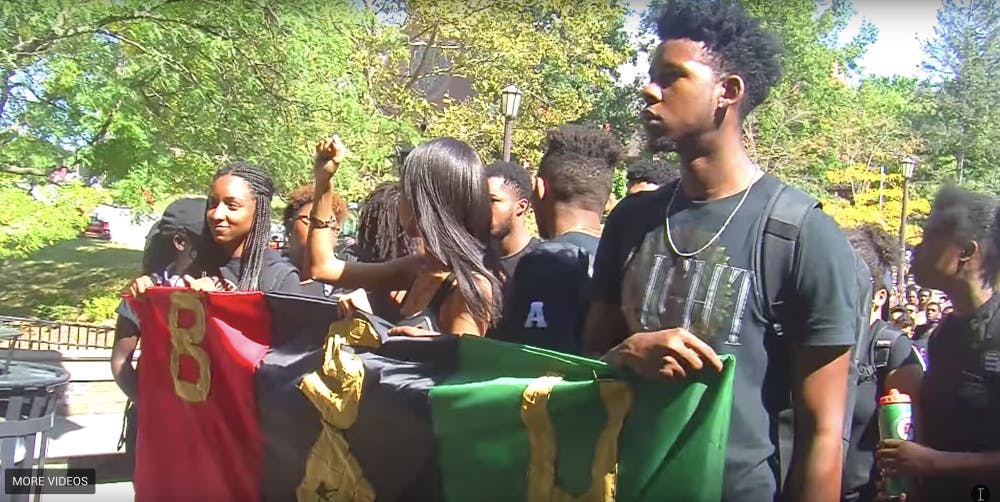
Black Students United, a student group at Cornell University, prompted public debate last month after releasing a statement arguing that the definition of “underrepresented black students” should apply only to those whose families have been in the United States for more than two generations. It also argued that the black student population at Cornell disproportionately represented African and Caribbean international students.
"While these [black international] students have a right to flourish at Cornell, there is a lack of investment in Black students whose families were affected directly by the African Holocaust in America," the statement read.
BSU released their list of demands as a response to the assault of a black Cornell junior by a group of white Cornell students. The student was punched in the face and called the N-word.
On Oct. 12, BSU published a statement on its Facebook page apologizing for the delay in its response to public criticism, but did not retract its initial demand from September. The post read, "We apologize for the delay in response and any conflicting feelings this demand may have garnered from the communities we represent. Our mission aims to support all members of the African Diaspora both nationally and internationally, as we are a board comprised of Africans, Caribbeans, and Black Americans."
Aggrey Odera is a College and Wharton junior from Kenya, who is currently studying abroad at Oxford University. Odera said he felt BSU made a valid point when criticizing the underrepresentation of African Americans at elite institutions.
"I think there are some merits to the argument that American blacks are not being represented as they should be," Odera said. "The numbers are sort of being inflated because we [African international students] are counted as black."
Odera, however, disagreed with the group's comments regarding black students who are not from the United States. He does not believe that the claims should result in African students being denied admission at higher rates.
"The benefits they’re looking for should not be at the expense of African students," Odera said. "It’s not like there could be too many black people at these institutions. It doesn’t make much sense to me."
Wharton junior Allysha Davis said she thought that BSU's other demands in their initial statement, particularly the point about hiring faculty to teach mandatory courses on race issues, were "spot on."
Although Davis said she believes that black Americans should receive greater representation on college campuses, she said she does not completely agree with BSU's stance.
"Whether we come from Africa, the Caribbean or New York and are black in America, a lot of people in the outside world just see us as black," Davis said. "People are going to go through this systemic racism no matter where we are, so I feel like we shouldn’t focus on one particular group."
Brian Taylor, the managing director of the Ivy Coach, a college counseling service, agreed that colleges should do more to reach out to the African-American community.
"Should colleges like Cornell and Penn be doing more to encourage underrepresented African-American students to apply?" Taylor asked. "Yes, they could do more; they should do more, they must do more."
Taylor found it ironic that a politically left-leaning student group would express beliefs that are anti-immigrant in nature.
"Presumably, these are not supporters of our president," Taylor said. "And yet, some of their sentiment is also anti-international students. They’re espousing ideals that are anti-foreigner."
Davis, however, does not think that BSU is necessarily against immigrants.
"I do think they appreciate their counterparts who are from Africa or the Caribbean and do believe that they should flourish," Davis said. "They just want higher numbers from black students in America and in that case, I wouldn’t classify them as anti-foreign.”
The Penn Admissions Office did not respond to requests for comment.
The Daily Pennsylvanian is an independent, student-run newspaper. Please consider making a donation to support the coverage that shapes the University. Your generosity ensures a future of strong journalism at Penn.
Donate






